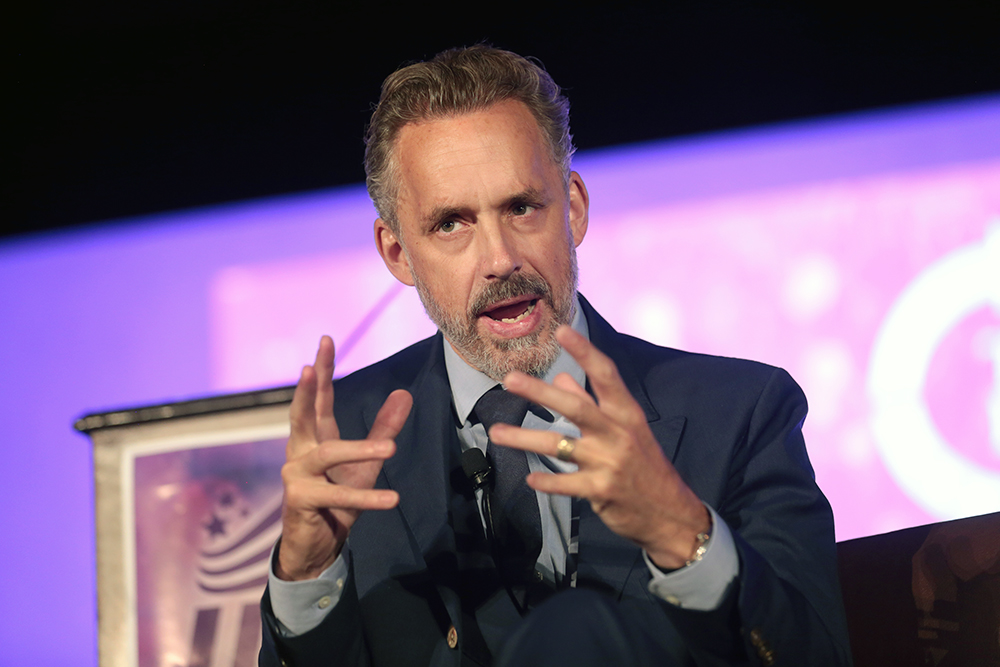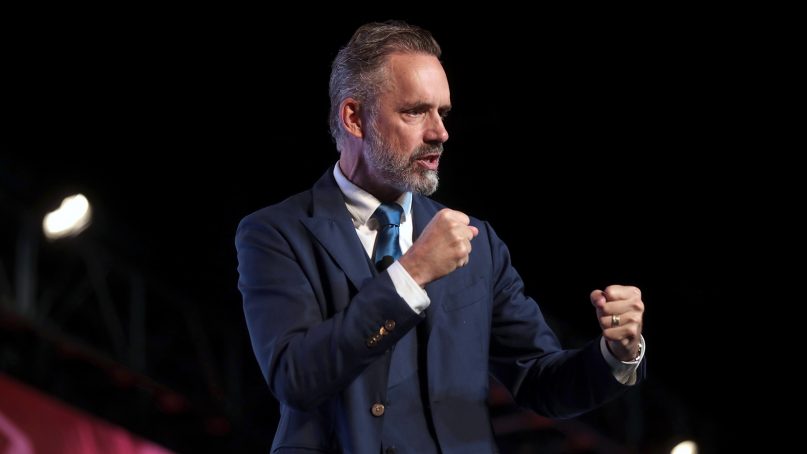(RNS) — Jordan Peterson is following up his bestselling, controversial 2018 book, “12 Rules for Life: An Antidote to Chaos,” with 12 more rules. According to an announcement last week by Penguin Random House Canada, “Beyond Order: Twelve More Rules for Life” will be published in early spring 2021.
The announcement drew an outcry from publisher’s staff, many of whom criticized the publishing giant’s choice to support an author whose views they deem to be transphobic: Peterson first came to prominence in 2016, when he spoke out against a Canadian anti-discrimination bill that protected gender identity as a category, arguing the measure would make refusing to use a person’s chosen pronouns illegal.
Staffers also expressed concerns about Peterson’s popularity in right-wing circles, in particular with the kind of young, white, hyper-online reactionary men who have come to make up the majority of the online far right. “He is an icon of hate speech and transphobia and the fact that he’s an icon of white supremacy, regardless of the content of his book, I’m not proud to work for a company that publishes him,” one staffer told VICE News.
RELATED: Did RBG beat Trump in cosmic court?
It is unlikely that staff outcry will be sufficient to cancel a commercial behemoth like Peterson’s book (although staff kickback was enough to persuade Hachette to cancel Woody Allen’s far more controversial memoir last year). The controversy may well only further bolster Peterson’s unlikely brand: relatively straightforward masculine-coded self-help strategies you might associate with tough-guy paternal love (“Stand up straight. Clean your room.”) transformed into the mythic narrative of the culture wars.
Peterson’s status as a crusader against “social justice warriors,” as well as his detractors’ attempts to code him as a hateful transphobic, have only served to ennoble this onetime minor psychology professor as a cultural touchstone. Peterson’s status as “anti-woke Daddy” depends on his odd blend of common sense and a touch of Jungian psychology, with impossible-to-refute, broad-strokes culture criticism — society, we learn from “12 Rules,” has constantly navigated between the forces of chaos and order.
But this melange has made him so much more than the content of his bestselling books. His obsession with “free speech” and socially unpleasant scientific “truths” has led him, not merely to the ranks of the “intellectual dark web,” but to meetings with actual reactionary authoritarians such as Hungarian President Viktor Orban.

Jordan Peterson addresses the 2018 Young Women’s Leadership Summit in Dallas in June 2018. Photo by Gage Skidmore/Creative Commons
It would be easy to dismiss Peterson as merely a charlatan who makes hay by rushing to stand for anything that “woke” feminists and “social justice warriors” might find distasteful. Certainly, his more outré public campaigns, such as his recent attempt to live exclusively on a diet of red meat, or his dangerous cold-turkey rehab in a Russian clinic for his benzodiazepine addiction, seem tailor-made for internet outrage and ire.
It’s easy, too, to point out the irony of a self-help guru who has frequently spoken out about the need for willpower, including among addicts, discussing his own addiction as a purely medical phenomenon, rather than a partially psychological one.
But rather than dismiss Peterson’s attraction, it’s worth considering what, exactly, he provides to his fan base.
Progressive millennials and members of Generation Z, after all, hardly lack things to “stan.” Political activism, civic religion and celebrity culture — with its fantastical hero-worship — have all come to converge in our contemporary world. We might “stan,” for example, a “queen” like Alexandria Ocasio-Cortez for “killing it” on Twitter by making salient leftist points, or else venerate the “Notorious RBG” — as the late Supreme Court Justice Ruth Bader Ginsburg was often known to her younger, internet-saturated fan base, with a votive candle or a commemorative T-shirt.
These “queens” are, of course, accomplished women and scholars, but their fans deploy them as avatars in the culture wars. AOC and RBG are fetishized as quasi-superheroes, champions of feminist, progressive values.
For a certain kind of young person coming of age in the Trump era, these politico-celebrities have attained a mythic underdog status as brave resistance fighters in the battle of good and evil that has come to define our political landscape. These commodified icons allow their adherents to bolster their own self-understanding. Their personal brands consist, in part, of who they stan.
Peterson does the same for a different fan base. His battle of good against evil pits brave truth-tellers such as himself against the insidious forces of the social-justice-industrial-complex, with his very person as both celebrity spokesperson and the commodity. His life is a fantasy of heroism for alienated young men encountering the fundamental brokenness of modern life, just as their feminist progressive counterparts are.
To be a fan of Peterson is less to live according to his actual 12 (or, now, 24) rules than to venerate the brave elemental man Peterson portrays. In embracing Peterson’s controversy and opposition, the fan paints himself as a rugged individualist entirely free of “victimhood” but who is also fundamentally in touch with his “true” “masculine” nature. It is a fantasy of both freedom and authenticity.
It wouldn’t be fair to suggest that these Peterson stans are following their hero to the very heart of self-help culture. Self-help has always, after all, been about selling the fantasy both of being free to remake your life, and discovering your “true” self along the way. Peterson’s next 12 rules hardly matter. It’s who he is, not how he lives, that matters.






